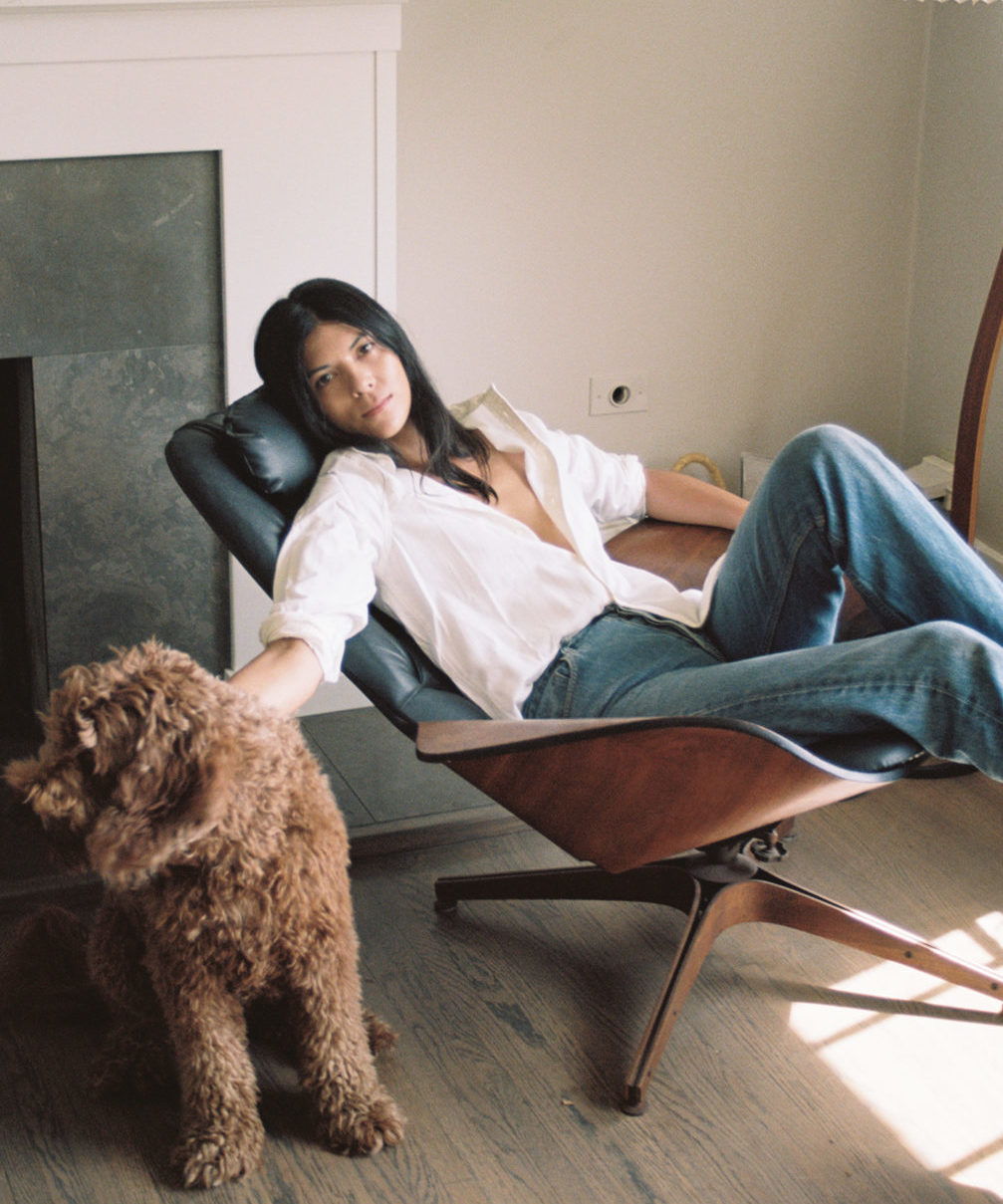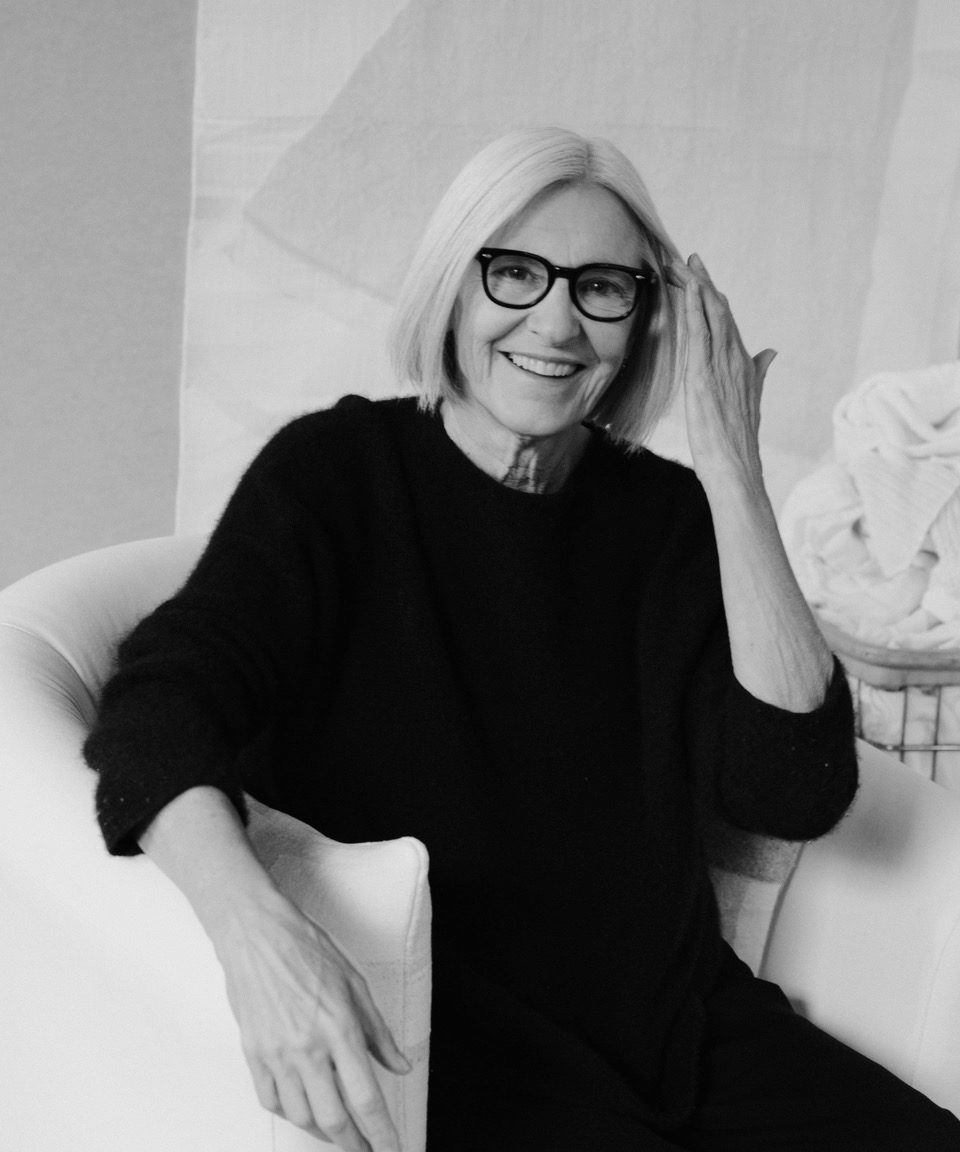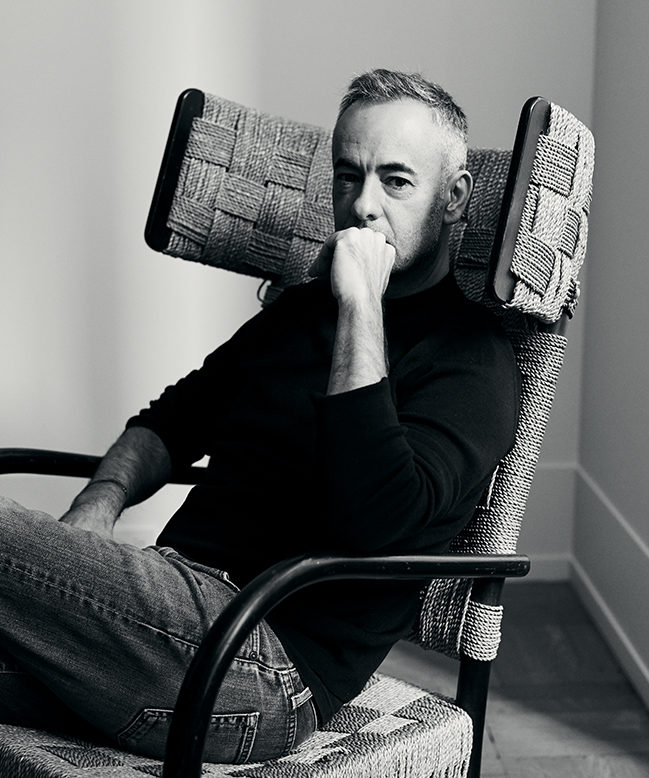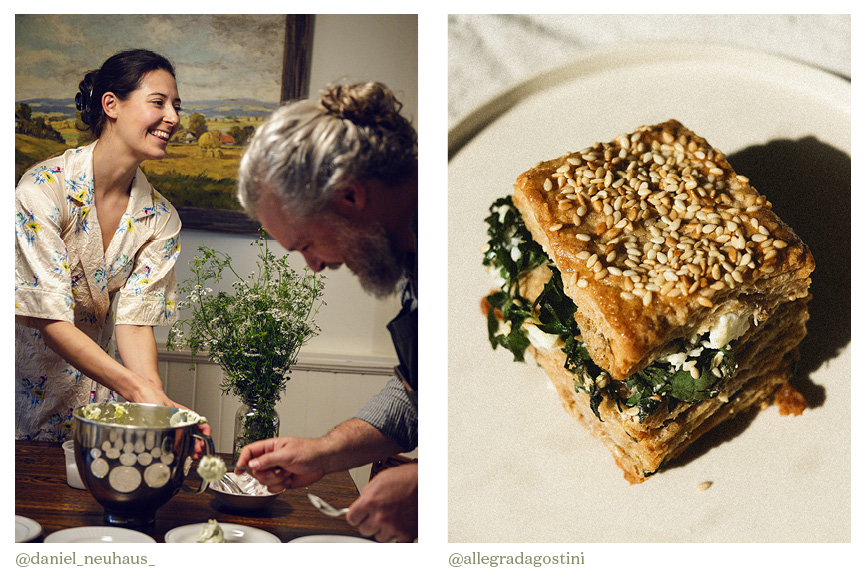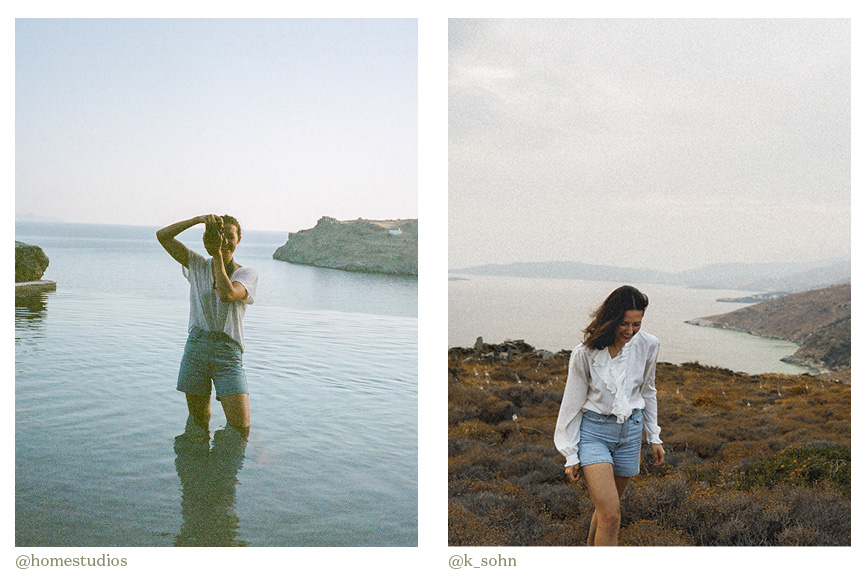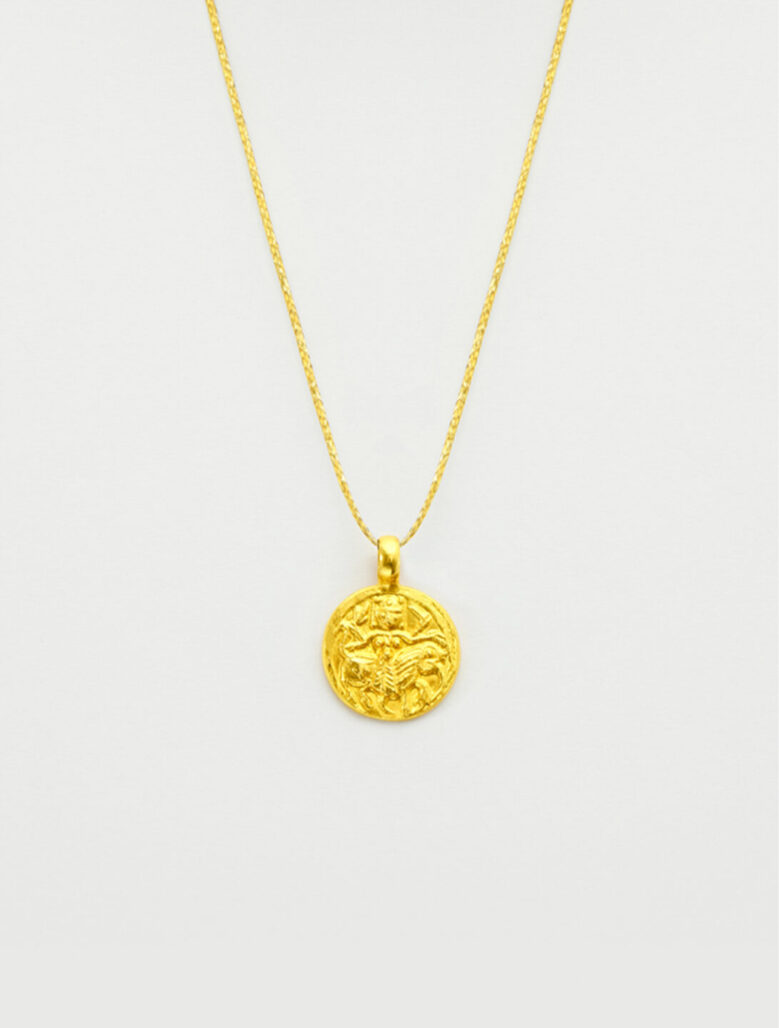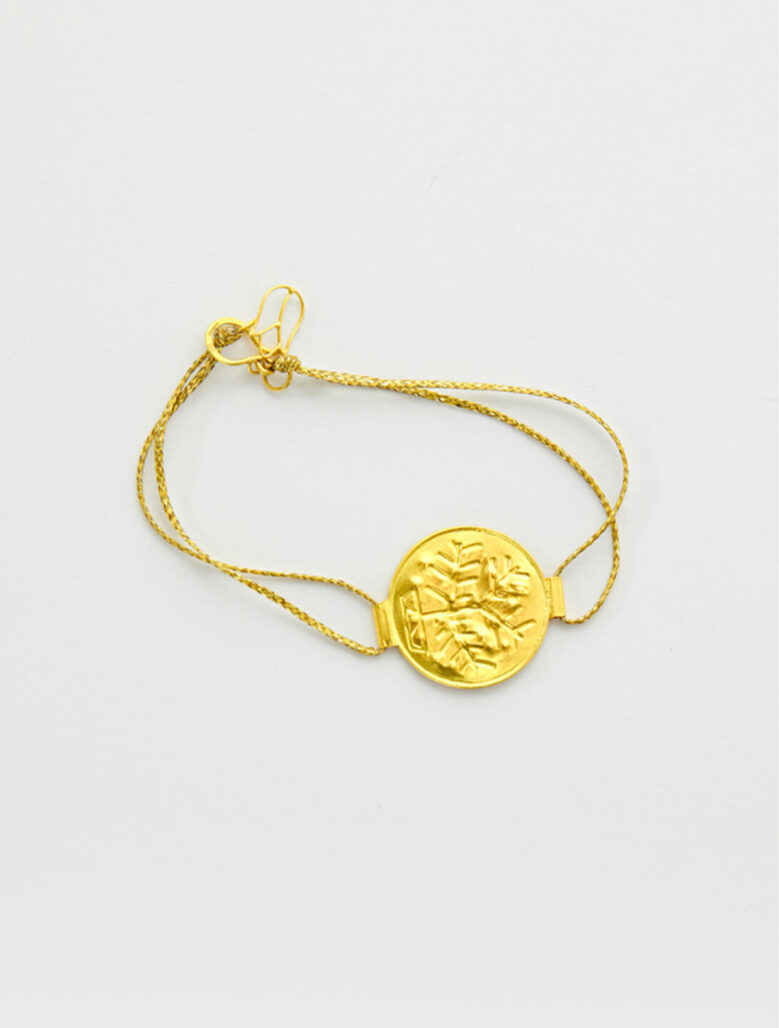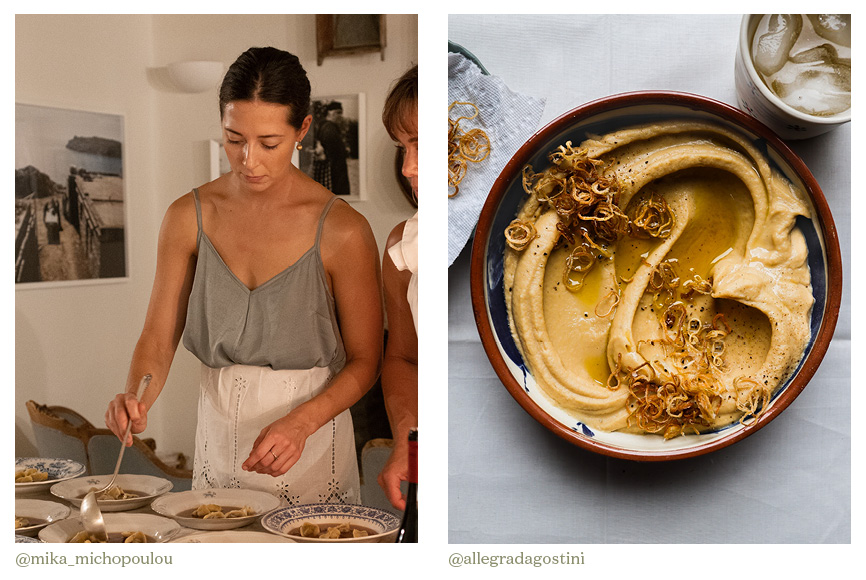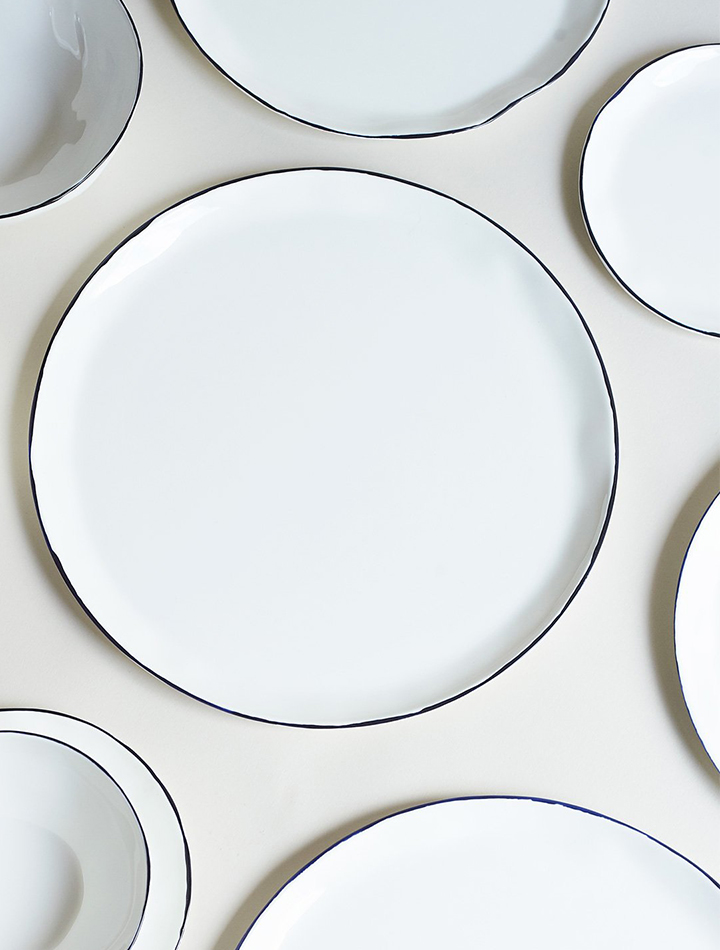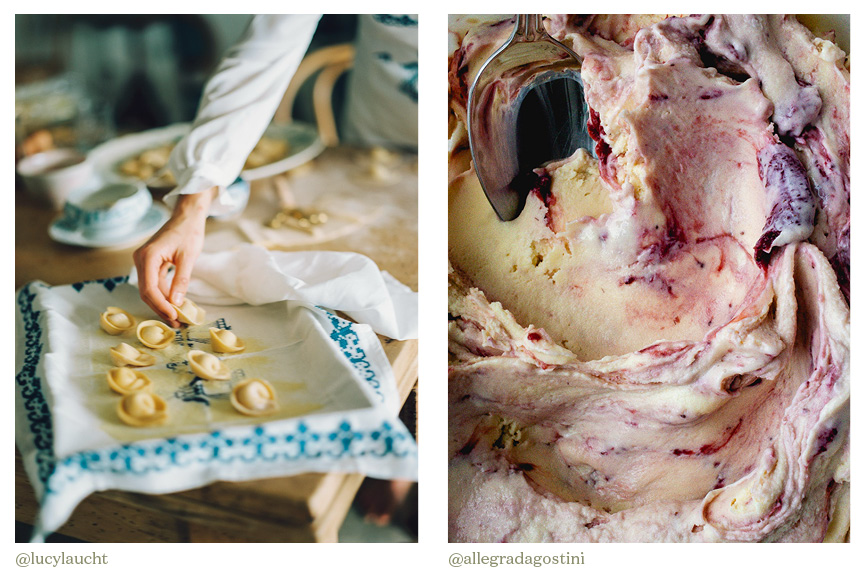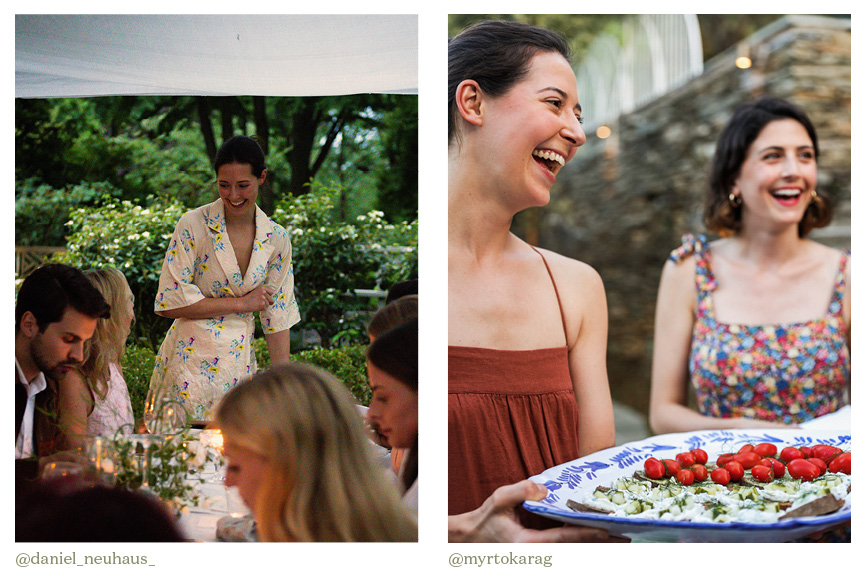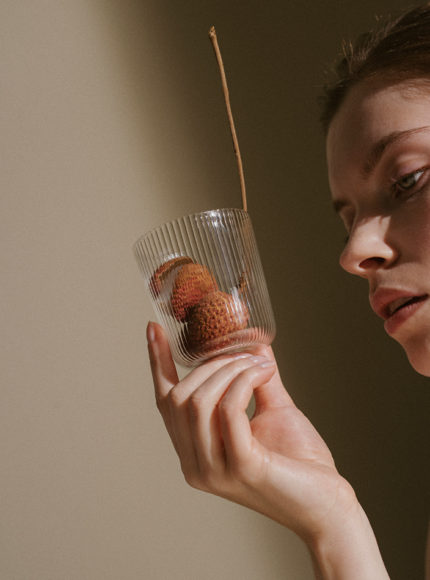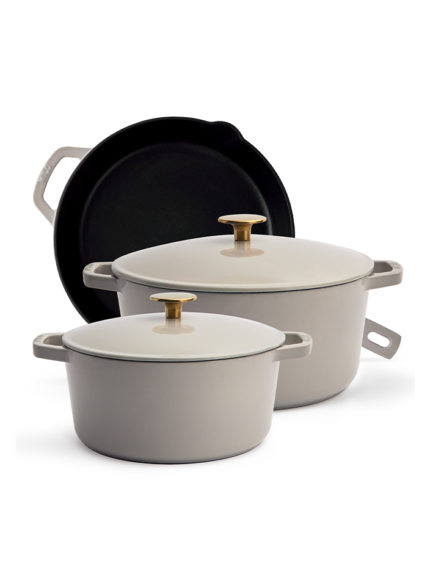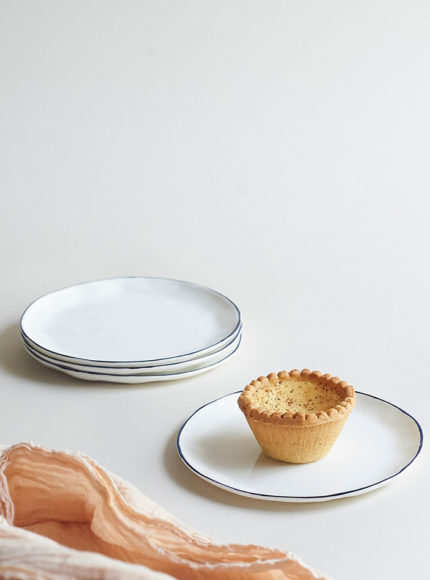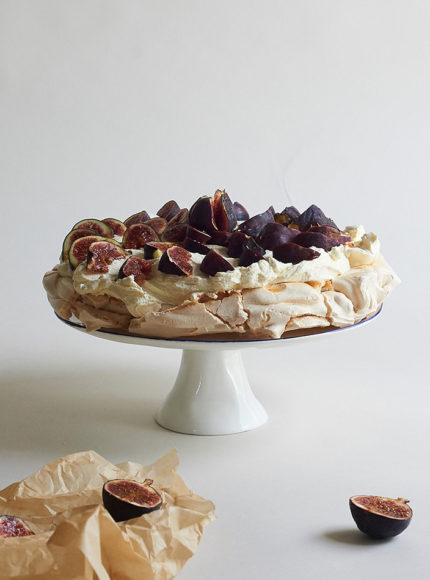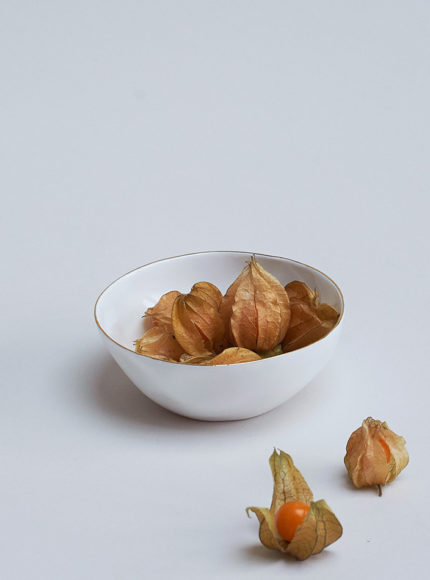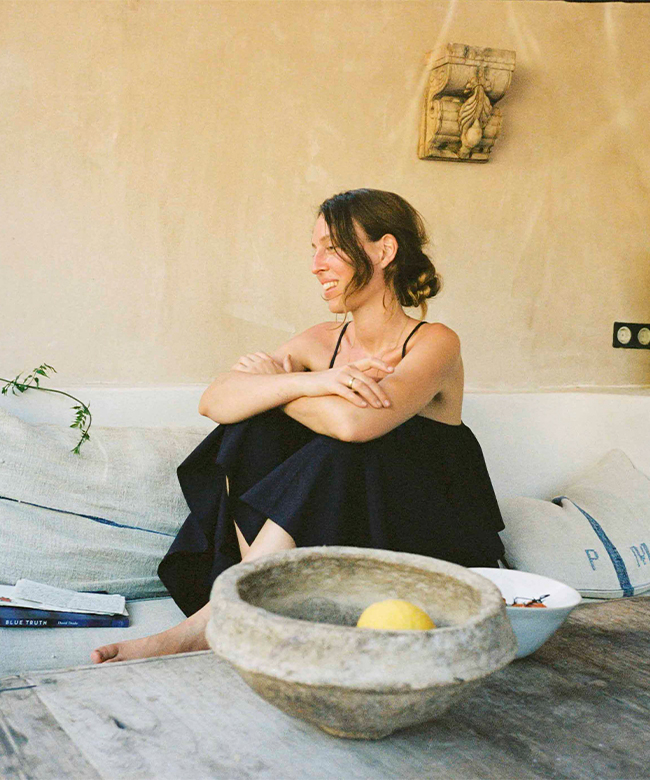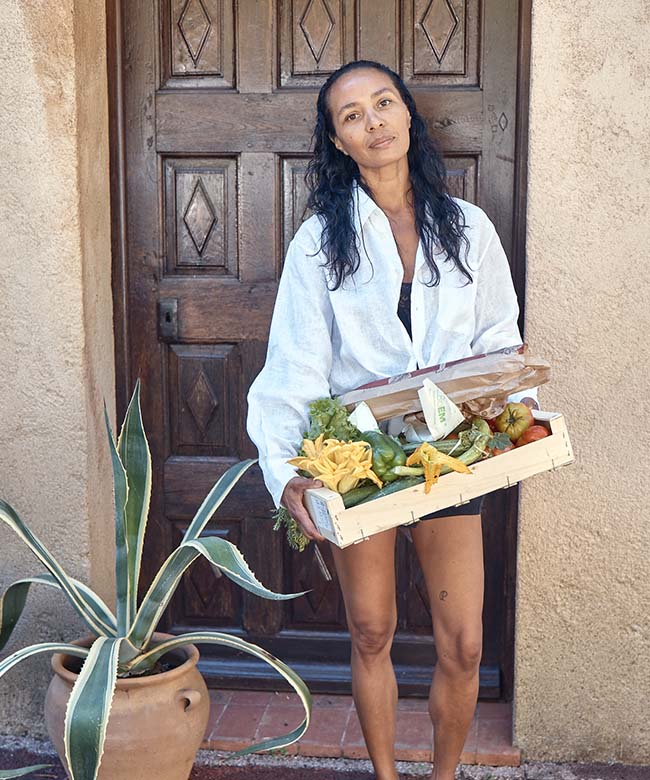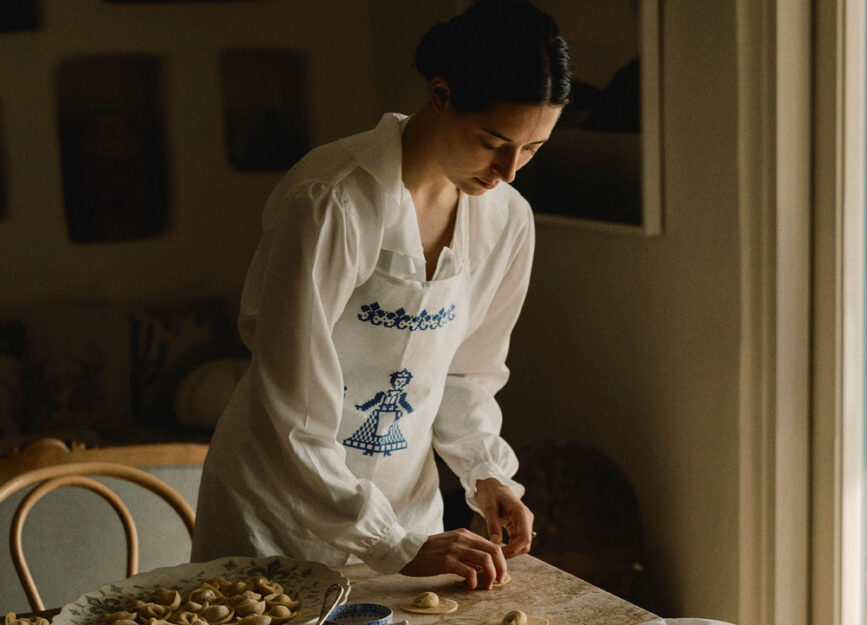

@allegradagostini by @jessicaforaie
@allegradagostini by @jessicaforaie
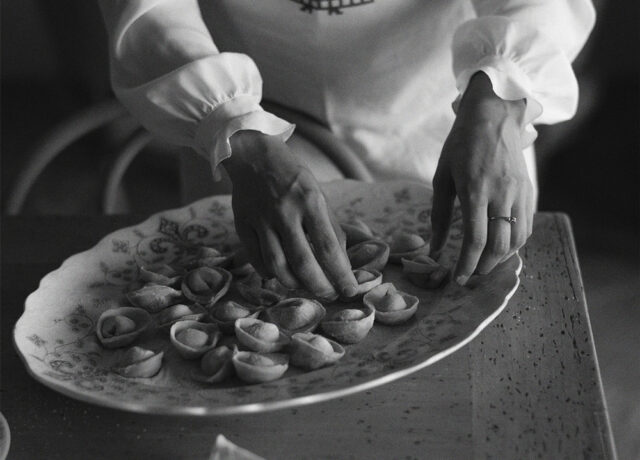

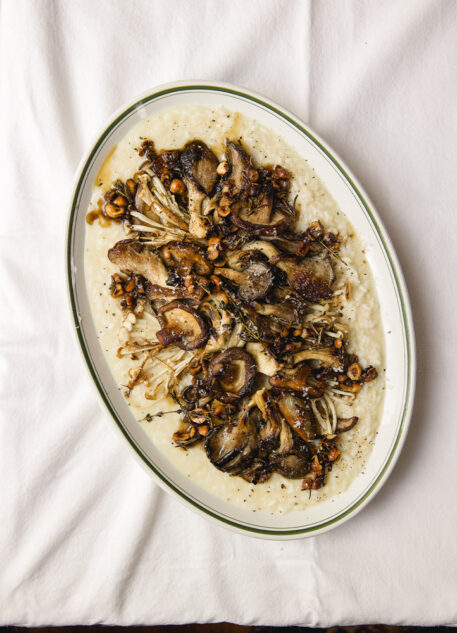

@allegradagostini
Food & Garden
Our Sustainable Food Series with Allegra D’Agostini
In this exclusive interview we speak to slow food chef & photographer, Allegra D’Agostini (@allegradagostini)! Through her beautifully curated instagram, Allegra shares her lifestyle along with her stunning food photography, linking to some of her delicious recipes. Allegra takes inspiration from her travels and time spent in nature and infuses seasonality and tradition into her food. We love Allegra’s slow approach to food and we hope you can enjoy and feel inspired by this interview as much as we are!
First of all, can you please introduce yourself and tell us a bit about your journey into food?
My name is Allegra D’Agostini. I am a cook and photographer living between a small town in Ontario, Canada and London, England. From a young age, I’ve been obsessed with food. I spent my childhood absorbed in cookbooks and was always in the kitchen, either helping my grandmother make dinner after school or conducting cooking experiments with my sister. I discovered food blogs in my late teens and by that time, many of the authors had stopped writing but nonetheless, I obsessively poured over their archives. Around then, I began hosting ambitious dinners with friends and family and capturing photos of what I was making. I never considered working with food to be a viable career path until graduating from university with a degree in biology. It was then that I started cooking professionally, first in a small bistrot close to home and then eventually making my way into the kitchens of some of Canada’s best restaurants.
Working in these settings was grueling and stressful but ultimately, invaluable. I learned what it looks like to care so deeply about your craft that you are willing to sacrifice the endless time and energy (and sanity to a certain degree) necessary to excel. Ultimately, I left Canada to cook for a boutique hotel in Greece where for the first time, I was exposed to brilliant creative individuals working with food outside of kitchen settings. From food stylists to photographers to cookbook authors, they helped me realize that there are so many applications for my love of food and visual beauty and that through this work, I could bring people together to form real, meaningful connections. I’ve been chasing this dream ever since.
You’re from Ontario, Canada and I would love to know how having grown up there influences your approach to cooking? Would you say there is a sustainable ethos to it?
I grew up on a tree farm, surrounded by fields of trees and wild forest. My first cooking memories weren’t with food, but with petals and berries as ingredients and twigs as utensils. My sister and I found endless entertainment playing fairies in my mom’s garden, foraging for ingredients with which we crafted colorful dishes edible only by the standards of a caterpillar. Growing up on the farm taught me to value the environment deeply and it has certainly informed my approach to cooking and eating. Here, I watched the Canadian seasons unfold and became aware of the natural cycles of produce. Although Ontario has access to a vast range of fruits and vegetables year-round, early on it became evident that no raspberries were as sweet as those picked in July and no peach as juicy as in August.
Much has changed since then, but I have never lost my sense of wonder or appreciation for the natural world. It continues to inspire what and how I cook: I indulge in the incredible seasonal produce when we have it, preserve and store the excess during peak season for the colder days, and generally make honest food with simple ingredients, ideally harvested in their prime, and enjoyed alongside loved ones.
How do you feel that food can connect us to nature?
Food is nature, and so are we. It’s easy to feel as though we live in a bubble and to lose sight of the source of our ingredients, especially in urban environments. Eating in a considered way by asking ourselves why we are choosing to eat something and being aware of where our food comes from and how it was grown can deepen our appreciation and help reconnect us to the source.
Even better, growing our own food is an amazing way to feel deeply connected to the environment. From seed to fruit or vegetable, growing food that will eventually sustain us is so incredibly rewarding and puts us in direct contact with the natural world. It also aligns us with the rhythms of bounty and dormancy and causes us to become more mindful of the seasonal availability of produce.
How has seasonality and locality played a role in your food philosophy?
Whether or not to prioritize seasonal and local eating is a complex issue but ultimately, I believe in supporting local farmers growing food with sustainable practices. Doing so supports local economies, reduces transportation-related emissions, and aligns us with our environment. That being said, many studies in recent years have shown that transportation is the source of just a tiny fraction of the carbon emissions associated with our food. What we eat and how it was produced are much larger contributors to our carbon footprint. For example, consuming animal products is the most costly factor of all and farming with chemical fertilizers and pesticides can be very carbon intensive.
I think that eating local food is a good thing and that produce ripened on the plant will almost always be the most flavourful and nutritious option, but based on this research, our energy would be better directed towards thinking about how we can support farmers using sustainable practices, even if they are a bit further away, and reducing our intake of animal products rather than exclusively sourcing food locally.
_____________
Here are some of the articles I consulted, in case you’d like to include them!
Food-Miles and the Relative Climate Impacts of Food Choices in the United States
A Comprehensive Life Cycle Assessment of Greenhouse Gas Emissions from U.S. Household Food Choices
The role of trade in the greenhouse gas footprints of EU diets
How big a role does plant based eating play in your cooking?
The vast majority of the time, I choose to follow a vegetarian diet and I don’t eat much dairy or eggs. I occasionally eat meat, particularly when I’m traveling. Food is such a rich expression of culture and I embrace it by trying everything. My cooking follows the same principles. I’ve probably cooked meat three times in the past year and each time has been very intentional. On a daily basis, I love experimenting with produce and aligning my cooking with the seasons. I eat tons of greens, nuts, legumes, fruits and vegetables, and occasionally a bit of cheese or yogurt. I feel the best eating this way. Overall though, I believe in the aphorism “perfection is the enemy of good” when it comes to most things, and particularly with food.
How important is organic to you when talking about cooking and our food choices?
I definitely prefer to consume organic products whenever possible. Among other reasons, farming organically supports biodiversity, soil health, and reduces the environmental impact of food production. That being said, the cost and availability of organic ingredients can be prohibitive and I think that consuming fruits and vegetables, organic or not, is better than not at all.
You create such beautiful dishes from very simple ingredients, do you think that aesthetic is a large part of the senses when it comes to food?
Thank you! And yes, I’m convinced that beauty is a powerful form of communication and that humans are inherently attracted to it. To ancient Greeks, beauty in form was considered direct evidence of goodness in spirit. When it comes to food, we eat with our eyes first and make judgments about our meals based on these impressions. Of course, something can taste wonderful and look completely unappetizing, but that’s not ideal. I’ve worked in food styling for the past couple of years where extreme cases of perfectionism regarding the appearance of food are standard. When I cook for myself or for my photos, I like the food I prepare to look real, not necessarily perfect, but realistically delicious.
Do you have a particular ingredient you love working with?
I love nice oil. And nuts generally, for their flavour and texture.
I’ve been making and cooking with lots of spiced oils lately, think variations on chili crisp oil. I like to add freshly ground spices, toasted sesame seeds and/or chopped nuts to them. They’re a great staple to have on hand to add punchy flavour to anything from a salad to rice to a spread like hummus.
How do you think cooking can have a positive influence in the wider world?
I think that cooking can be an amazing means of communicating important ideas about culture and society. I’ve witnessed cooks, professional or otherwise, become educators by using their choices of ingredients and preparations of dishes to draw attention to the environmental or social context of a meal. Through doing so, they increase awareness of the relationship between the food and our environment. At its best, the table is a setting for connecting over a shared appreciation for one another and the ingredients and environmental context, such as location or season, behind the meal.
I’ve come to view food as a catalyst with the remarkable ability to ease social interactions and help us bridge connections with one another and our shared environment. It’s a powerful thing and leaning into our natural inclinations to feel at ease in the presence of food and using cooking and food to bring people together can help build community in our increasingly disconnected, lonely society.
You do such beautiful travel pieces as well – do you feel it’s important to experience other cultures when it comes to cooking?
Every time I visit somewhere new, one of my priorities is to experience as much of the local cuisine as possible. Exposure to new cultures through travel is enlightening and food itself and the rituals surrounding its preparation are little windows into the broader culture of any given place. With each new experience, my horizons are broadened and I always feel inspired to experiment with these cuisines at home. Learning about other cultures can definitely translate into becoming an increasingly thoughtful and educated cook, and generally, can make us more empathetic humans.
What is a dish you have discovered that has been meaningful to you to recreate?
Living in Greece for several years taught me the importance of using the best quality ingredients possible and letting them speak for themselves. Back in Canada, I’ve tried to recreate some of the dishes that I learned there, like fasolakia, an incredible dish of broad beans and potatoes cooked with olive oil and a simple tomato sauce and faki, a soupy lentil dish cooked with bay leaf, garlic, and shallots. These meals bring me back to leisurely lunches on the island, connecting with friends and loved ones. They remind me to savour slowing down and appreciating things for what they are.
And finally, if you could share some simple tips for our audience who may want to get into more sustainable cooking habits, what would they be?
People often tell me that eating a predominantly vegetarian diet wouldn’t satisfy their appetite and I think this prevents them from leaning into this lifestyle. There are so many amazing recipes out there, in cookbooks, magazines, and online. Experimenting with vegetarian cooking and finding a few recipes that you love, that satisfy you, and that you feel comfortable making can help convince you of the virtues of veggie food. Above all else though, it’s crucial to be kind to yourself and remember that perfection doesn’t need to be the goal. Making small changes can go a long way and reminding ourselves of this is important for long-term success when it comes to building new habits.














